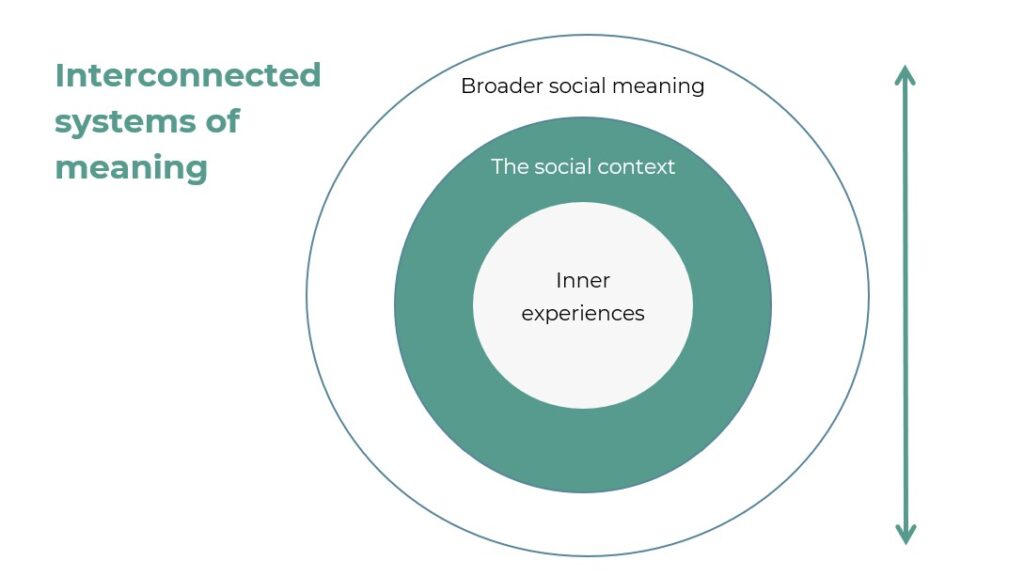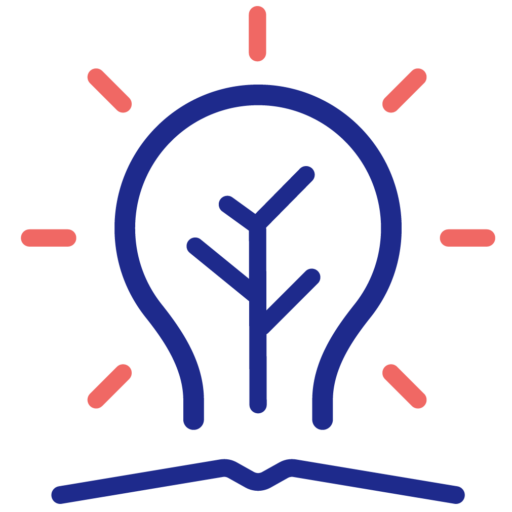
In qualitative research, your question isn’t just a starting point—it’s a commitment.
It commits you to a way of seeing, a way of asking, and a way of interpreting. It also commits you to particular layers of meaning: whether your focus is on the inner world, the interpersonal realm, or broader social structures.
As we explored in the last post, meaning in qualitative research isn’t one thing.
It’s shaped through three interconnected systems:
- Personal / Psychological – inner experiences, identity, emotions
- Social / Interpersonal – relationships, roles, interactions
- Structural / Cultural – institutions, policies, discourses, norms
Your research question signals where you’re entering these systems—and what kind of insight you’re aiming for.
Your Question Locates You in the Field of Meaning
Take a project on teenage food practices. Your question could take you in very different directions:
- How do teenagers experience control and autonomy in relation to eating at home?
→ This question orients you toward inner experience and family dynamics. It might call for narrative interviews and a phenomenological approach.
But even this question could stretch further. Maybe you’re also curious about how cultural narratives about adolescence shape what happens at home. That would pull you into broader meaning systems—media, discourse, public messaging.
The point is: a topic like “teenagers and food” could sit across all three systems. What matters is being clear about:
- What exactly do I want to know?
- What are the aims of this project?
- Which system(s) of meaning best allow the research question(s) and aim to be explored?
You may draw on more than one—but you need to know which you’re prioritising. That clarity will shape what counts as data, how you collect it, and how you make sense of it.
Your Question Guides Data Decisions
Your research question also helps you make intentional choices about data collection and analysis. It guides:
- Which data collection methods are most appropriate, based on the system(s) of meaning you’re working within. A project focused on inner experience may call for narrative interviews or diaries. One oriented to structural discourse might involve policy texts or media analysis.
- How you read and interpret the data. Your question helps clarify your theoretical perspective: What lens will help me answer this question? What insights open up when I engage with the data through this frame?
This enables you to stay analytically attuned to the kinds of meaning your question is designed to explore.
Method Follows Focus, Not the Other Way Around
It’s common to start with method: “I want to do focus groups.” But in qualitative research, method needs to follow your analytic purpose.
For example:
- Want to explore meaning in interaction? Focus groups might make sense.
- Interested in public messaging? Media analysis is a better fit.
- Looking at inner dilemmas or identity shifts? Consider semi-structured interviews.
Each method brings particular meanings into view. Your question should lead you to the method and theoretical perspective—not the other way around.
A Good Qualitative Question Does Analytical Work
Your question isn’t just there to get you started. Like a compass, it helps centre your analytical work, informing:
- What you’re paying attention to
- What kinds of meaning matter
- How you’ll interpret the data
It’s not just a question. It’s the anchor that keeps your project focused, grounded, and meaningful.

